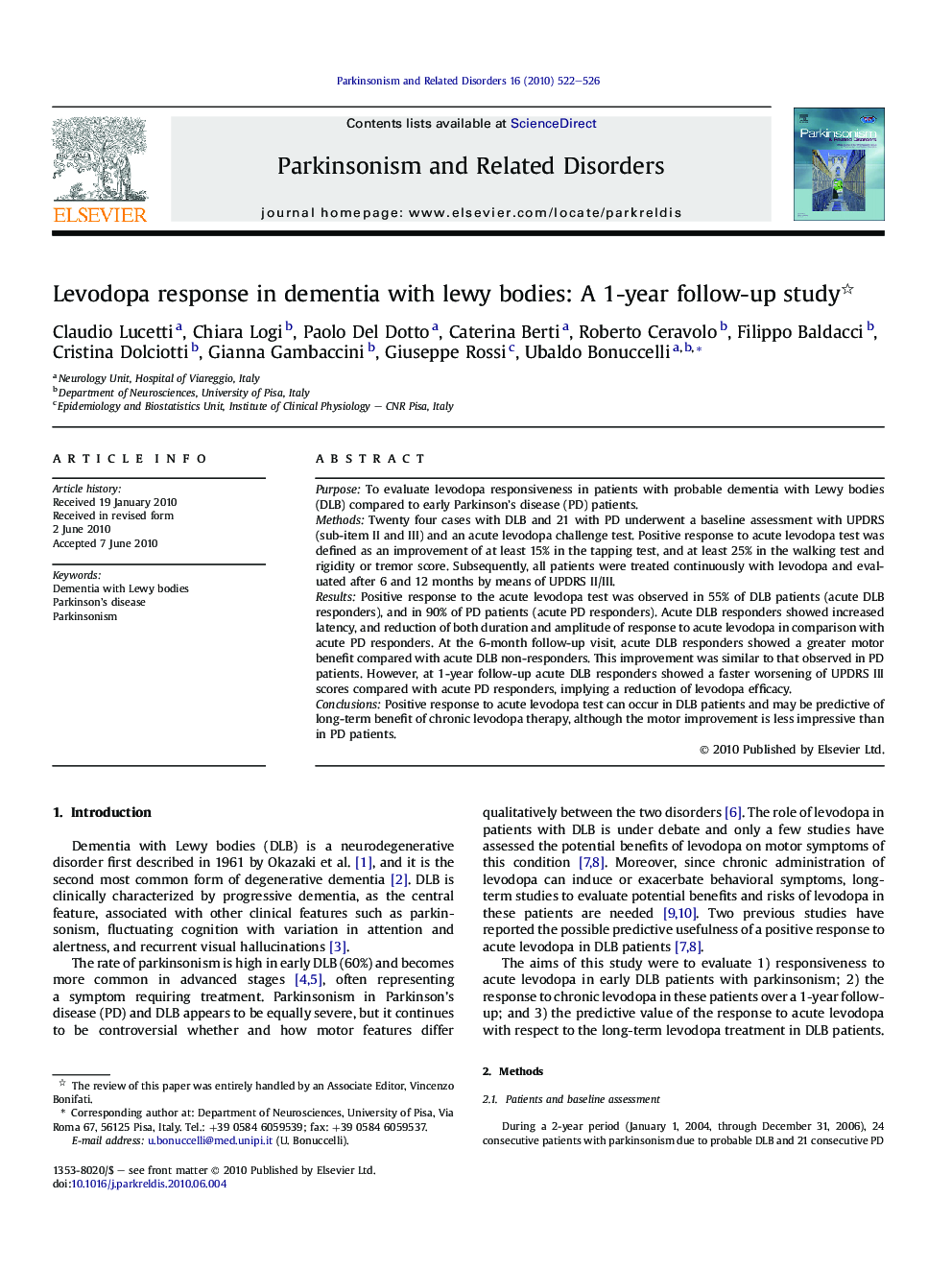| Article ID | Journal | Published Year | Pages | File Type |
|---|---|---|---|---|
| 1921336 | Parkinsonism & Related Disorders | 2010 | 5 Pages |
PurposeTo evaluate levodopa responsiveness in patients with probable dementia with Lewy bodies (DLB) compared to early Parkinson’s disease (PD) patients.MethodsTwenty four cases with DLB and 21 with PD underwent a baseline assessment with UPDRS (sub-item II and III) and an acute levodopa challenge test. Positive response to acute levodopa test was defined as an improvement of at least 15% in the tapping test, and at least 25% in the walking test and rigidity or tremor score. Subsequently, all patients were treated continuously with levodopa and evaluated after 6 and 12 months by means of UPDRS II/III.ResultsPositive response to the acute levodopa test was observed in 55% of DLB patients (acute DLB responders), and in 90% of PD patients (acute PD responders). Acute DLB responders showed increased latency, and reduction of both duration and amplitude of response to acute levodopa in comparison with acute PD responders. At the 6-month follow-up visit, acute DLB responders showed a greater motor benefit compared with acute DLB non-responders. This improvement was similar to that observed in PD patients. However, at 1-year follow-up acute DLB responders showed a faster worsening of UPDRS III scores compared with acute PD responders, implying a reduction of levodopa efficacy.ConclusionsPositive response to acute levodopa test can occur in DLB patients and may be predictive of long-term benefit of chronic levodopa therapy, although the motor improvement is less impressive than in PD patients.
